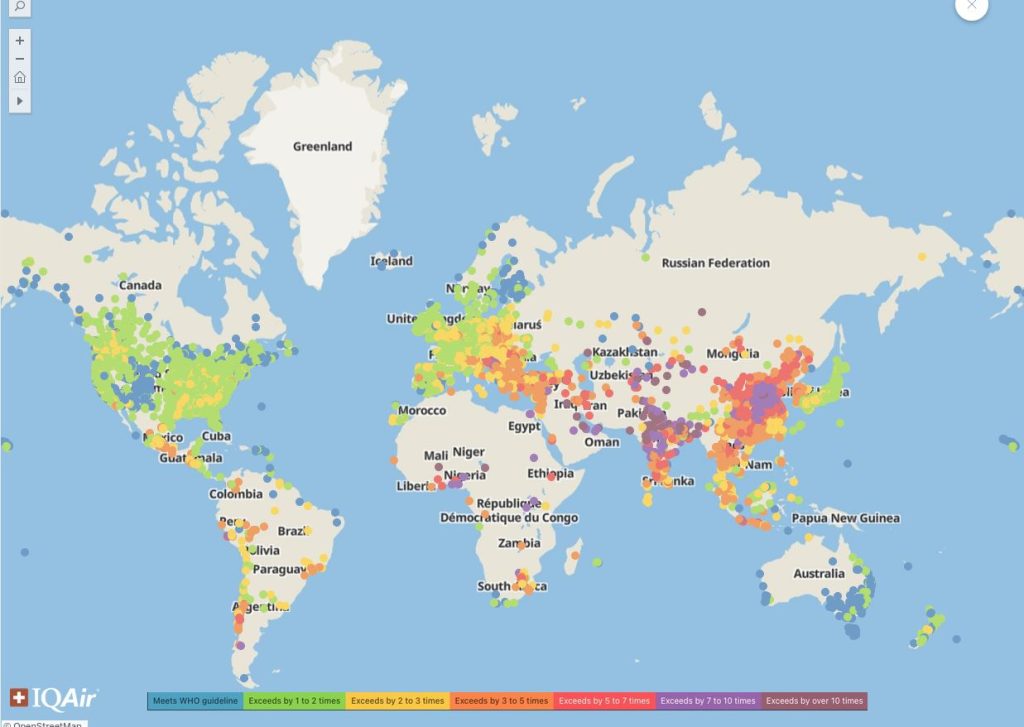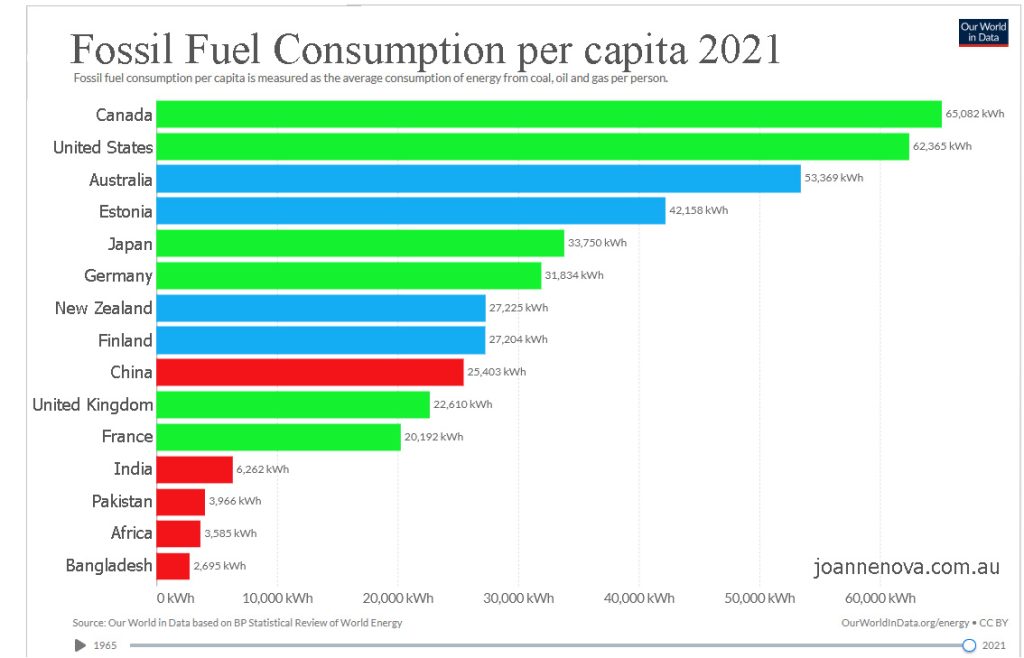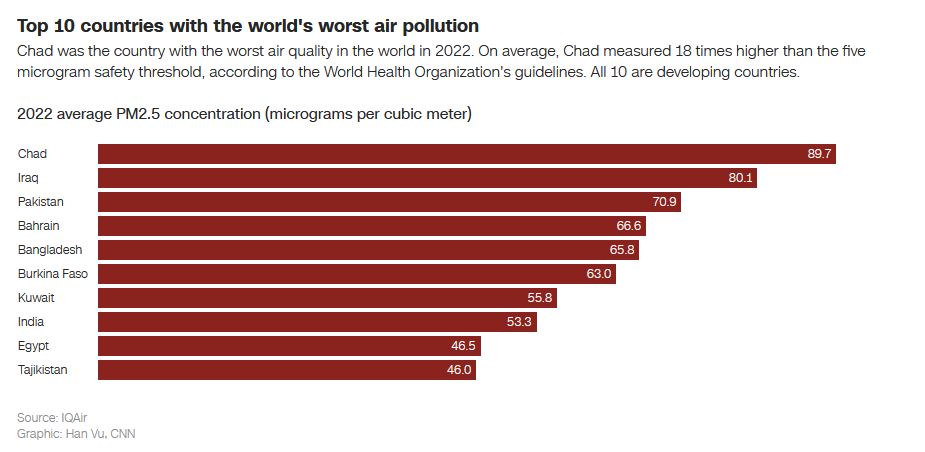
Source: IQAir
The trend is clear: Burning more fossil fuels per person means less polluted air
Tell the world: two weeks ago a new study showed Australians and New Zealanders breathe the cleanest air on Earth. Not far behind them are people in the US, Canada, most of western Europe and Japan.
Naturally, hypnotized journalists either ignored the story or repeated the magic spell conclusions that fossil fuels were to blame, along with wildfires “caused by climate change”. All of them momentarily forgetting that Australians burn more fossil fuels per capita than nearly anywhere on Earth and are also renown for wildfires so big they drop ash on New Zealand.
The best air in the world turns out to be in nations that burn a lot of fossil fuels per person. The most polluted air is in poorer nations, poor sods.
Report: Only six countries met ‘healthy’ air quality standards in 2022
March 14 (UPI) — Just six countries had “healthy” air quality levels last year, as air pollution surged across the globe.
Only Australia, Estonia, Finland, Grenada, Iceland and New Zealand, met the World Health Organization’s air quality guidelines, according to IQAir, a company that tracks air quality.
Seven territories in the Pacific and Caribbean also met the threshold, which calls for an average air pollution level of 5 micrograms per cubic meter or less.
The study looked at fine particulate matter, or PM2.5, which comes from fossil fuels, dust storms and wildfires. It has been linked to a number of respiratory illnesses.
The study was done by IQAir which tracks air quality. The CEO of the North American branch has the unlikely name of Glory Dolphin Hammes, and she “attributed the global rise in air pollution to the continued burning of fossil fuels.”
[CNN] Around the world, researchers said, the main sources of air pollution last year were wildfires and the burning of fossil fuels for transportation and energy production, which wreaks havoc on the most vulnerable and marginalized communities.
“This is literally about how we as a planet are continuing this unhealthy relationship with fossil fuels,” Hammes said. “We are still dependent on fossil fuels and fossil fuels are responsible for the majority of air pollution that we encounter on this planet.”
While Hammes is concerned with our relationship with fossil fuels she might want to learn about power plant engineering instead. What matters is not whether you hate coal or love it, but whether you have good engineers.
Australians and Americans burn more fossil fuels per capita than nearly anywhere yet have the cleanest air.

Countries that use more fossil fuels per capita have cleaner air | Source: OWID
Apparently just thinking about solar and wind power makes for “less pollution”:
Hammes said countries must learn from each other, noting that the countries with best air quality, for example, are the ones taking on specific actions to transition away from polluting industries and into greener forms of energy, such as solar and wind.
The worst air is in places that can’t afford to build centralized, well engineered fossil fueled plants.
Chad topped the list of countries with the worst air pollution, registering a level of 89.7 micrograms per cubic meter.

Click to enlarge or visit CNN
Chad has the worst air in the world, but it doesn’t have a single coal fired power plant. Total electricity production in Chad is 314MW among 14 million people. Mostly diesel and gas.
Thirty-nine of the 50 cities with the worst air pollution were in India, which also ranked as one of the worst countries in overall pollution.
Columbus, Ohio; Atlanta and Chicago topped the list of major US cities with the worst air quality.
Obviously population density matters, but some of the most densely populated points on Earth are Hong Kong which kept levels down to 14.4 µg/m3 in 2022, and Tokyo which is now under 10 µg/m3.
IQAIR may not understand the energy industry, or the driving cause of particulates, but it does have cool graphics and an interactive map you can zoom in on. If only journalists could do some research and ask Ms Glory Dolphin Hammes a hard question before they repeat her incantations.
The 2022 World Air Quality Report reviews the status of air quality around the world for the year 2022. This report presents PM2.5 air quality data from 7,323 cities across 131 countries, regions, and territories. The data used in this report was aggregated from over 30,000 regulatory air quality monitoring stations and low-cost air quality sensors.
The air quality data utilized in the 2022 World Air Quality Report was sourced from IQAir’s real-time online air quality monitoring platform which validates, calibrates, and harmonizes air quality data from monitoring stations located around the world.